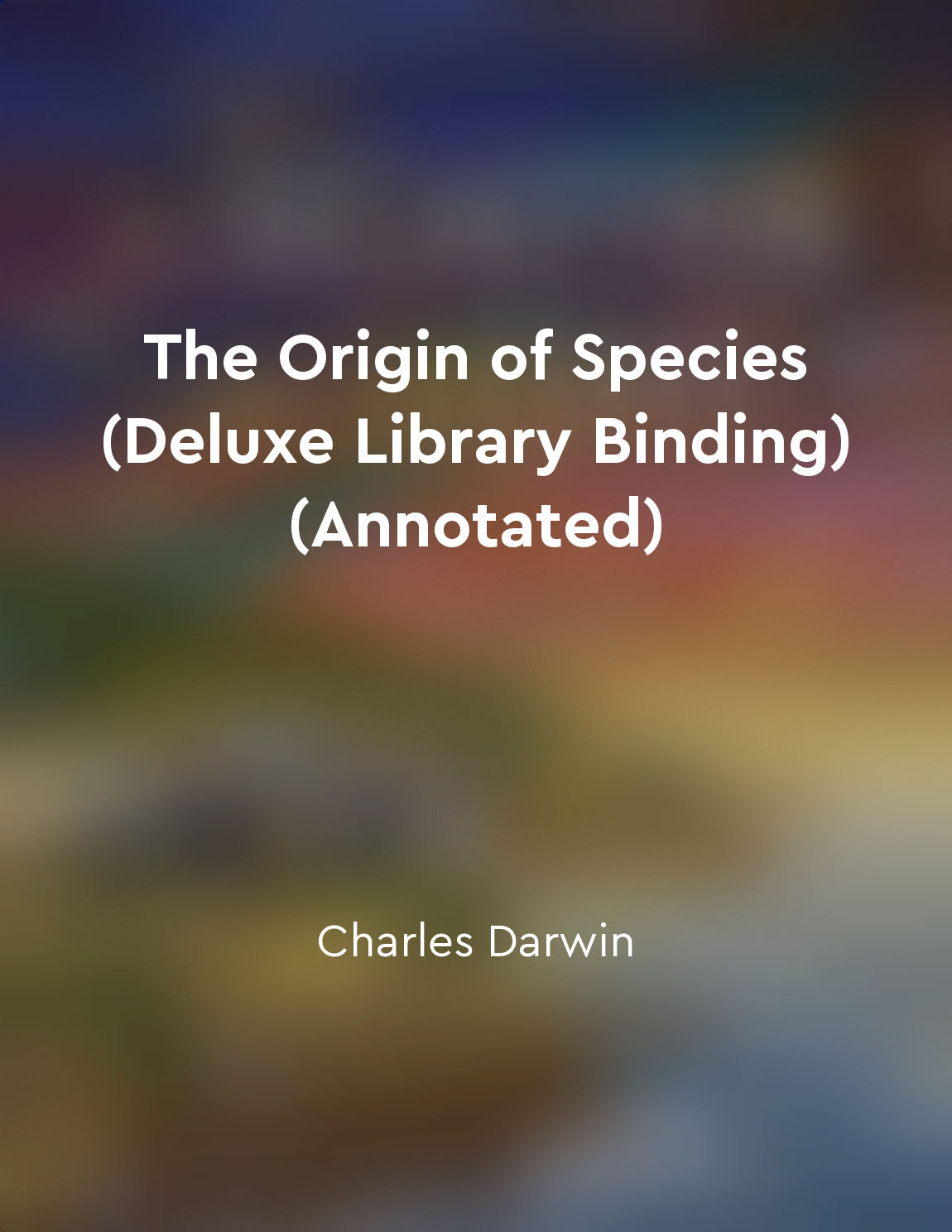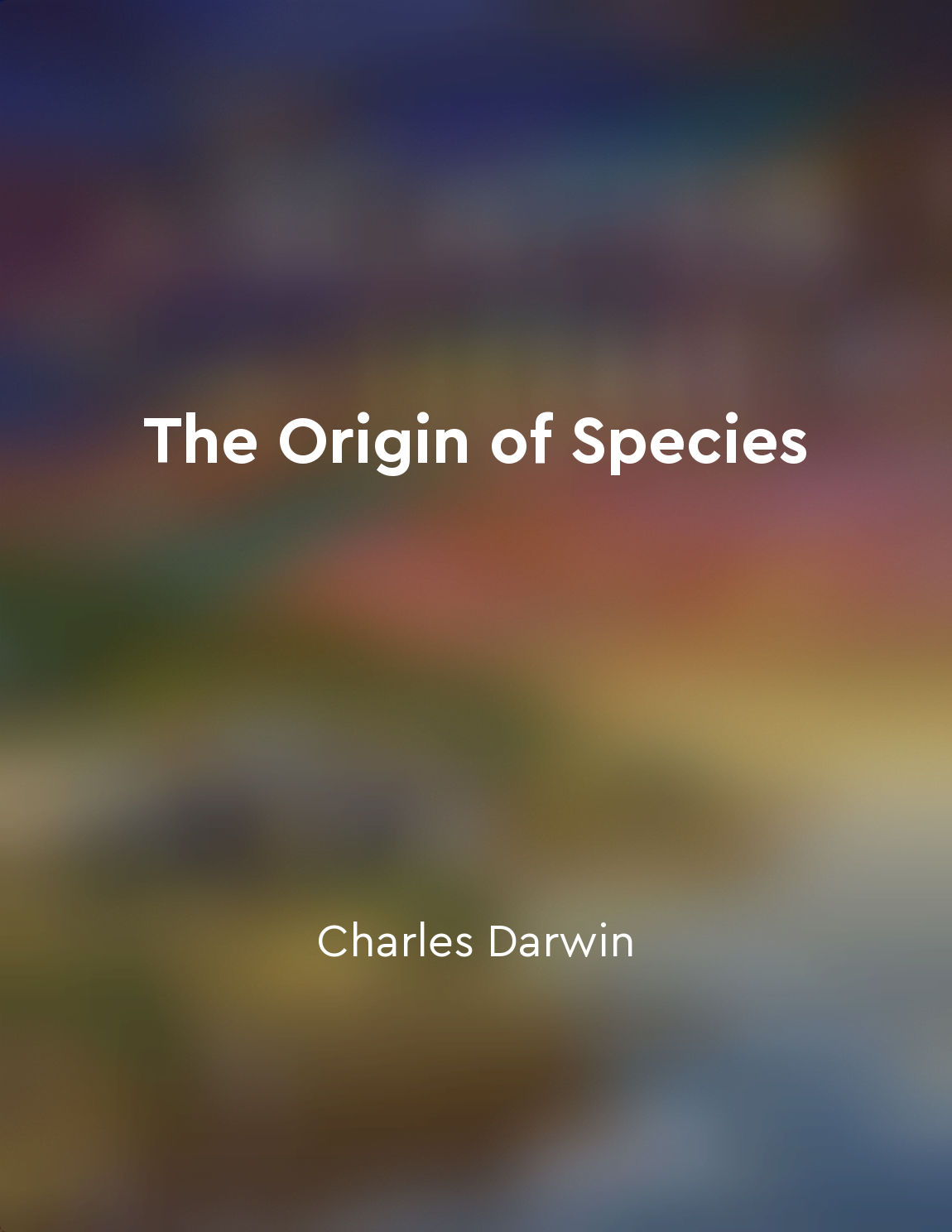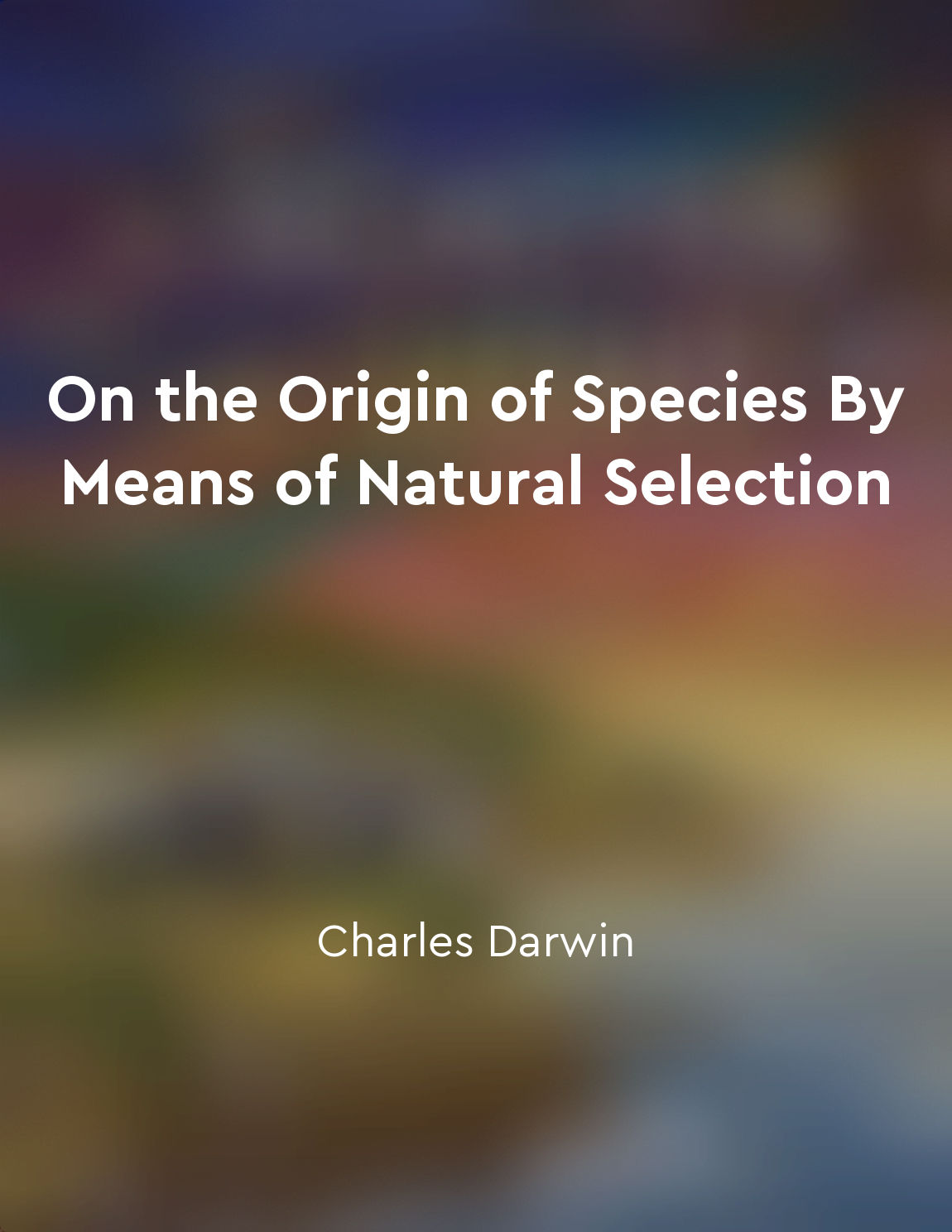Gradualism in evolutionary processes from "summary" of On the Origin of Species By Means of Natural Selection by Charles Darwin
The process of evolution, as observed in the natural world, is characterized by a gradual change over time. This gradualism is a fundamental concept in understanding how species evolve and adapt to their environments. Instead of sudden and drastic changes occurring in a short period, evolution proceeds at a slow and steady pace, with small variations accumulating over generations. This gradual accumulation of changes can be seen in the fossil record, where transitional forms between different species provide evidence for the gradual nature of evolution. These transitional forms show intermediate stages between distinct species, demonstrating how one species can gradually transform into another over time. One of the key mechanisms driving this gradual change is natural selection. As individuals within a population vary in their traits, those with advantageous traits are more likely to survive and reproduce, passing on their beneficial traits to future generations. Over time, these advantageous traits become more prevalent in the population, leading to the gradual evolution of the species as a whole. Another factor contributing to gradualism in evolution is genetic variation. Through processes such as mutation and genetic recombination, new variations arise within a population, providing the raw material for natural selection to act upon. These genetic variations can accumulate over time, leading to the divergence of populations and the eventual formation of new species. By understanding the concept of gradualism in evolutionary processes, we can appreciate the slow and steady pace at which life on Earth has evolved. This concept provides insight into the mechanisms driving evolution and the interconnectedness of all living organisms. Through gradual changes over time, species have adapted to a wide range of environments, showcasing the power of natural selection in shaping the diversity of life.Similar Posts

Encourage autonomy
Encouraging autonomy is about giving people the freedom to make decisions and take control of their own work. When individuals ...
Diversity fuels discovery and progress
The interconnectedness of different ideas, cultures, and individuals is what drives innovation and advancement in society. It i...
The importance of evidence
Evidence is crucial. It forms the foundation upon which our understanding of the world is built. Without evidence, our beliefs ...

Reproduction is essential for genetic transmission
Reproduction plays a crucial role in the transmission of genes from one generation to the next. Without the process of reproduc...

Species evolve to fit their ecological niches
The idea that species evolve to fit their ecological niches is a fundamental concept in the theory of evolution. When we look a...
Evolutionary theory can inform conservation efforts
The application of evolutionary theory to conservation efforts represents a powerful and essential tool in the modern world. By...
Social hierarchies can influence reproductive success
Social hierarchies are not just about power and dominance; they also play a crucial role in determining reproductive success. I...
Genetic mutations drive the variability of traits within a population
In the world of biology, genetic mutations play a crucial role in driving the variability of traits within a population. These ...
Meiosis is the process of producing gametes
Meiosis is a type of cell division that occurs in sexually reproducing organisms. This process is responsible for producing gam...

